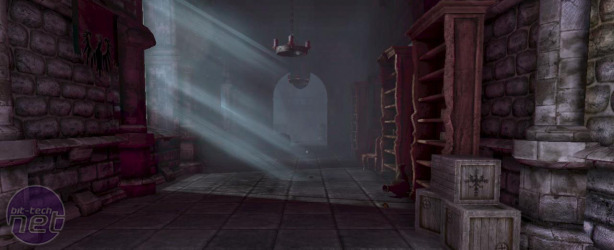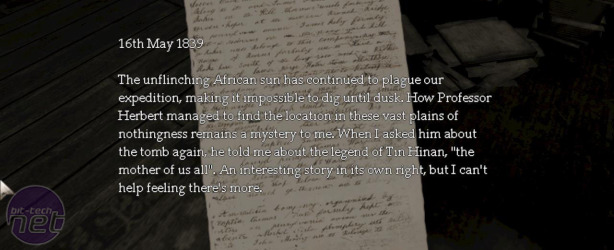Amnesia: The Dark Descent Hands-on Preview
June 23, 2010 | 10:49
Companies: #frictional-games #indie

Amnesia: The Dark Descent Preview
Publisher: Frictional GamesPlatform: PC exclusive
Release Date: August 2010
Following on from and using many of the same ideas as the indie-hit Penumbra series, it shouldn’t really need to be said that Amnesia: The Dark Descent is a very scary game. Just take a look at the name, for example – this isn’t like to be a case of rainbows and bunny-flavoured lollipops, is it?
Still, there’s a difference between knowing that it’s going to be scary and actually trying to prepare for the cartful of horrors and suspense that Frictional Games is determined to throw at you. We were prepared. We thought we knew what was ahead. We'd played the entire Penumbra series over the years. We were confident that the small development team at Frictional Games didn’t have any more tricks to fright us with.
As it turns out, we were right on that last point and Frictional Games is plainly struggling to find a way to push their unique flavour of horror forwards. Amnesia: The Dark Descent didn’t manage to show us any brilliantly new ideas beyond what we’d seen in the Penumbra games. On the other hand though, what it did show us was still very effective. Amnesia is a very scary game.
Oddly though, it’s not a very coherent one – something that can be laid squarely at the feet of the eponymous medical condition. There’s no introduction cutscene or tutorial to ease you into The Dark Descent’s grimly gothic world, your character just wakes up on the floor of an ancient manor/castle and struggles to pull himself to his feet. Exploration duly commences through a veil of severe motion blur and distortion effects intended to communicate your fragile state and you’re forced to pick up the story as you go.
Exposition happens mainly through found notes and diary entries, plus the occasional supernatural flashback or out-of-body experience – all of which are hallmarks of the Penumbra series too. For whatever reasons, Frictional Games don’t seem to like making games where the story is straightforward, so don’t expect to wander into a room to find a wise old man ready to tell you what’s going on.
Instead, what you’re more likely to find lurking in the shadows of Amnesia are, well, more shadows. Something is hunting you through the crumbling stone corridors and basements of (what you eventually find out is called) Brennenberg Castle; something nightmarish and ghostly. It’s more of a force than a thing really, occasionally swooping in to terrorise you by turning off the lights or shattering rifling invisibly through the contents of a room.
As was also the case with the Penumbra games, the focus is on avoiding this shadowy horror, rather than confronting it. Don’t even let it see you if you can help it – jump into the nearest dark corner instead and wait there until it goes away! If you even look at it for too long then your sanity, which is monitored in the inventory tab, will start to crumble.
Some of these ideas, especially the way that your sanity is monitored as a second health bar, seem a bit outlandish. In truth though, they’re actually help make Amnesia an even scarier game by limiting how courageous you can be and creating an interesting dynamic between light/dark and bravery/safety. In the shadows are safe from the monster, but you also can’t see what’s around you - which is scary and causes your sanity to drain away. Sticking to the well-lit areas gives you safety of another sort and lets you rest, but makes you visible and can consume other valuable resources, such as lantern oil.
The result is that Amnesia makes you constantly fight against yourself – in a good and actually quite brilliant way. When the monster comes all you’ll want to do is find a dark corner and curl up into a ball, not looking at it and not coming out, yet you can’t because you need to keep moving to stay alive. In moments of quiet you’ll feel cocky and will want to push on, lantern lit and bold…but then you’ll only succeed in running into trouble. Amnesia forces you to balance both approaches, moving fast when you can and trembling in the dark when the bogeyman decides to throw some books of shelves with his invisible hands.

MSI MPG Velox 100R Chassis Review
October 14 2021 | 15:04











Want to comment? Please log in.